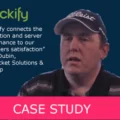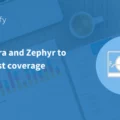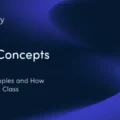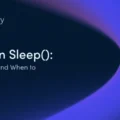| Matt Watson: |
Hello. This is Matt Watson with Stackify’s Developer Things Podcast. Thanks for listening today. Today we have Megan Horton as a guest. Megan is a employee here at Stackify. Megan, what do you do at Stackify? |
| Megan Horton: |
I think my official title is manager of customer success, but I kind of see it more as the ringleader of the nerds at Stackify. Yeah. I kind of oversee a lot of our client operations, the support team, our support site, and a lot of the onboarding process for our customers. |
| Matt Watson: |
So you pretty much keep this whole company running. |
| Megan Horton: |
I don’t know if I’d say that but sure. |
| Matt Watson: |
Well, what is the name of your team? |
| Megan Horton: |
We are Team Heisenbug. |
| Matt Watson: |
Team Heisenbug. |
| Megan Horton: |
Yes. We found the name. We were looking for quirky team names to keep up with the marketing team since they are Team Unicorn. We found heisenbug, which has a pretty cool, nerdy background story to it. It is a bug in software that changes its location once its pushed to production. We help lots and lots of clients find those bugs, so I thought it was a pretty appropriate name for our team. |
| Matt Watson: |
It does sound perfect. One of the things we want to talk about today was women in technology. Obviously you are a woman in technology. |
| Megan Horton: |
Correct, yes. |
| Matt Watson: |
I specifically want to talk about some of the problems that we have with women in technology. I think that’s a giant topic on a lot of sides. I think first it would be great to hear your story of how you got involved in software development and technology. |
| Megan Horton: |
Sure. It started out kind of growing up. I’ve always been a go-to computer person somehow. It never became anything I was officially interested in, but I always was like the go-to of, “Hey, our computer’s not working. Hey, our internet seems to be down.” I was always happy to jump in and problem solve. About, oh, nearing the end of my 20s, I was looking for a career change, and it just made sense for me. This is an industry I’ve always wanted to be in, so I went to a coding bootcamp, and that’s how I got my start with programming. |
| Matt Watson: |
What was your career up until then? |
| Megan Horton: |
Sure. I was in the funeral business. Yeah, I have a very different background than most coming into technology. Yeah, it was just an industry that was very emotionally draining, and this is definitely not. It was a good shift for me. |
| Matt Watson: |
Did you go Centriq, or where did you go? |
| Megan Horton: |
Yeah, so I went to Centriq. I spent 16 weeks heavily immersed in everything .NET, came out of there and ended up actually teaching at Centriq for about three years. Then I ended up here. |
| Matt Watson: |
So for those that are listening, Centriq is based here in Kansas City. It’s kind of one of those bootcamp kind of things that you go to. |
| Megan Horton: |
They’re a Microsoft partner. They do corporate training and career changers. I definitely benefited from a career changing path. |
| Matt Watson: |
So you went from the funeral business to killing software bugs. What was it like to be a trainer or teacher there, whatever you want to call it, at Centriq? What was that like? |
| Megan Horton: |
It was very eye opening for me for a lot of reasons. One of the main reasons being every time I walked into a classroom, I was lucky if I had one female in a class, which I just found kind of baffling to be honest, that it was just such a male driven industry and even as far as the school. It was pretty fun and very fast paced, which is nice. It was just a really cool environment to let people, as I always said, wave their nerd flag and figure out what part of programming drives them and that they find passion in. |
| Matt Watson: |
Yeah. One thing that’s always interesting about software development is I think people are always thinking it involves writing code, but there are so many different types of work. You don’t write code anymore, right? |
| Megan Horton: |
Not anymore. |
| Matt Watson: |
You oversee the support team. You’re really a project management or database administrator or system administrator. |
| Megan Horton: |
It’s cool because it’s one of the main industries where you can have a passion for anything and be involved in the technology aspect of that industry. It’s really cool. I always would tell my students, “Are you into agriculture? Are you into music? Are you into, it doesn’t matter, the restaurant business?” Whatever the case may be. They’re using technology in some way, shape, or form, and that’s definitely an avenue you could go into with it. |
| Matt Watson: |
Yeah, and we see that with our customer base, right? |
| Megan Horton: |
Oh, absolutely. |
| Matt Watson: |
I mean, we’ve got customers in like 50 different countries that are in every single industry there is. |
| Megan Horton: |
Yes. It’s really cool when you look at our client list. One of my favorite things is to just pick a client that I don’t know what they do and Google what they do. It’s mind blowing, just the whole gamut. We have the whole spectrum of people in software, and it’s pretty cool. |
| Matt Watson: |
I love going to the developer conferences too and meeting random people and be like, “Okay, what do you write software for?” I was at I think it was Microsoft Build, and I was just having lunch with some random guy. He was talking about the big machines they use to water crops that spin in a circle, right? He’s like, “Oh, I write the software that controls those microcontrollers that control how fast they move. It changes based on if it’s sunny or not sunny and the time of day to optimize how much water is put on the ground.” I’m like, “Never thought about that.” There’s software in everything, right? |
| Megan Horton: |
Everything, which is awesome. |
| Matt Watson: |
One of the biggest problems we have is we don’t have a lot of women in technology. |
| Megan Horton: |
Correct. |
| Matt Watson: |
We’re very lucky to have you … |
| Megan Horton: |
Thank you. |
| Matt Watson: |
… and we’re very lucky to have you here. As you mentioned, so in your class, you said, was it maybe 10% of your class was female? What would you guess? |
| Megan Horton: |
So we averaged 12 students per class and honestly I think once I had three. I had three girls in one class, and I made a big deal out of it. I was like, “This is crazy times. There are three ladies in this room right now. I think we just set a record.” Yeah, maybe 10% of my students. |
| Matt Watson: |
I went to DeVry University here in Kansas City. This was 17 years ago now. There was probably, I would say probably 10% or something like that. I don’t know what the industry numbers are but it’s low, right? |
| Megan Horton: |
It’s definitely low. I went to a career fair at UCM a couple weeks ago on Stackify’s behalf, just looking for some interns and for kids who might want to hear about what we do. I was shocked at the number of female resumes I received. It was so exciting. It was the first time where it was way over 10%. It was at least 30 to 40% of the resumes I came away with were females. |
| Matt Watson: |
That’s awesome. |
| Megan Horton: |
I thought it was an amazing shift. It was kind of cool to see that. |
| Matt Watson: |
I don’t know about your kids, but my kids, my oldest is eight, and at his school they actually have a STEM class now a couple times a week. He’s in second grade. They actually do a lot of weird programming sort of stuff. He’s always got some new iPad game now that is some sort of programming thing. He found one that you can use to make Minecraft mods. You drag and drop conditional things and like oh, when I throw an egg, it’s going to catch on fire and somehow or another he can press play and then it runs that in Minecraft. He can actually do it. He’s actually pretty excited about it. He loves it. |
| Megan Horton: |
When you start them early, the excitement is there. I know my 11-year-old had, in kindergarten we started the Junior LEGO League. He got to build a bird that they used just really simple mechanical piece that made its wings flap. Watching his little brain catch on fire with that was so cool because it was just he made it work, and it was his. He was just really excited about that. I think one of the keys and something that I’ve always pushed since I’ve been in software is starting them early, making sure we catch that fire right as it’s ready to ignite. It’s no different than learning a foreign language. It’s much easier when you’re a child to pick up on something like that. Same with technology. I recently wrote a blog post for Stackify on how to get kids into technology with some resources around town because a lot of people don’t know that exists, and it’s really cool to watch a little kid catch on with the passion for something that they can take throughout the rest of their life. |
| Matt Watson: |
Yeah. I was at an event for the Kansas City Tech Council, and one of the interesting things I took away from that is they said that most kids by the time they get to middle school, they don’t know necessarily what they want to do for their career, but they know what they don’t want to do, right? |
| Megan Horton: |
I would agree with that stat. |
| Matt Watson: |
They were really focusing on it was all about elementary education is where all these things had to be introduced. The stigma of it had to go away … |
| Megan Horton: |
It has to go away. |
| Matt Watson: |
… to get kids of all ages, more of them, involved in these types of career fields and not have negative connotations to them, right? |
| Megan Horton: |
Oh, absolutely. |
| Matt Watson: |
Ultimately, that’s where it all begins. They got to be little hackers as elementary kids. |
| Megan Horton: |
Yeah, little hackers. I like that. It sounds like a little after school kid club. I will tell you, I have four kids, and our 13-year-old daughter had an opportunity when she was signing up for middle school to take a programming course. I was all excited. I was like, “Oh, you’re signing up for that, right?” She was like, “Ah, no.” I was like, “Why not? You love math. You are extremely smart.” She was like, “Oh, that class is for nerdy boys.” Part of me kind of died inside. I was like, “Oh, no it’s not. A, you could be queen of that class. You could be the only girl in there. That would be awesome.” No. She is extremely smart, but that just wasn’t an okay option for her in her head, and that’s where that problem is, right? I wish I had been doing this forever at this point. They have such as opportunity to start young and get that ingrained, but no, the stigma there is intense. |
| Matt Watson: |
I mean, you nailed it, right? Your daughter is there. |
| Megan Horton: |
Yeah. |
| Matt Watson: |
[inaudible 00:10:29] oh no, that’s what the nerdy boys do. |
| Megan Horton: |
Yeah, that’s what the nerdy boys do. It’s like that’s crazy because you live in a house with me, right? You know that’s what I do. She like, “Well, what you do is cool.” I’m like, “That’s how you get down that path.” But no, just the connotation was no, thank you. |
| Matt Watson: |
Yeah. Over time that stuff’s going to have to change. |
| Megan Horton: |
If we’re going to fix women in technology as a whole, that stigma has to go away early. |
| Matt Watson: |
It’s got to change. I guess that’s like some other professions, being a male nurse or whatever it is. There’s other professions where they’re very kind of sexually discriminating one way or another. |
| Megan Horton: |
Absolutely. It’s fun though because I will go on field trips with the kids and stuff, and I’m now like the mom who plays video games, so I have some street cred with the kids, which is sad and funny all at the same time. I had a little sixth grade girl come up to me. She was like, “Can we talk about building robots?” I was never so excited. I was like, “I don’t know anything about how we’re going to get started talking about building robots, but I’m so excited that you want to talk about building robots. Let’s do it.” |
|
It was pretty neat for me to watch her get all excited and have an outlet of someone to talk to. Immediately afterwards her mom came up to me and she’s like, “Oh, I’m so glad you had that conversation with her because I don’t know what to say to her when she wants to talk to me about robots.” It’s like, “You don’t have to say anything. Just listen to her. Listen to her, find her some online programs.” She’s like, “Well, I don’t know anything about technology.” I was like, “We have Google, right? You could look it up and help her find some resources.” |
| Matt Watson: |
Yeah, that’s why I’m excited about the whole movement of STEM. |
| Megan Horton: |
It’s going to be awesome. |
| Matt Watson: |
You have art class, you have music class, and you have PE and you have STEM or whatever. You have these different classes that the elementary kids take. I love that my son’s school is doing that. |
| Megan Horton: |
It’s exciting. It’s super exciting. In our district, they give all the kids a Chromebook, but they don’t teach them how to type. I have four kids. It was like, “You want to learn the program, that’s awesome. I will teach you everything I know. You have to learn how to type first.” So we’ve got them typing. Now, once they hit certain speeds, we’ll get them on the different sites. |
| Matt Watson: |
So I’m actually a good example of that. My dad had a Commodore 64, so that’s what I really grew up with when I was like six, seven years old, like really starting using. I never in my life have learned to type the right way. I just type however a six-year-old figures out how to type. To this day, that is how I type. |
| Megan Horton: |
I’m going to watch you type from now on. You realize this, right? |
| Matt Watson: |
Yeah. You will find it probably pretty odd. |
| Megan Horton: |
That’s cool. |
| Matt Watson: |
Because I don’t do like your traditional home row kind of typing. I just type however a six-year-old … |
| Megan Horton: |
Obviously it worked out for you just okay. |
| Matt Watson: |
… figures out how to type and potentially that’s what your kids will do, right? |
| Megan Horton: |
Yeah. |
| Matt Watson: |
You’re like, if you want to go play with the computer, figure out how to hunt and peck the keys and figure it out. It’s not A, S, D, F, J, K. It’s you just figure it out. |
| Megan Horton: |
They just figure it out. It’s just ingrained in them naturally. They don’t see that as a barrier, right? I think if you were going to take a laptop to an adult who never worked on a computer, which I don’t know if that’s still a thing, but they would be like, “Well, I don’t even know how to type.” You put one in front of a kid, they don’t see it as a barrier. They don’t see it as a problem. They’re like, “I need to make this work. Cool. Let’s figure it out.” That’s where if we can get them early with STEM, we’re going to have so much success in getting rid of the stigma about software is for nerdy boys and watch it just flourish. |
| Matt Watson: |
The other day you became really famous on LinkedIn. I haven’t heard all the details of it, but I have a feeling it’s really interesting. You want to tell us about what happened on LinkedIn? |
| Megan Horton: |
Sure, so I think everybody at some point has read something online where someone became a keyboard warrior and got brave with some troll-like comments on someone’s social media page. I woke up on Saturday morning, and my phone was on do not disturb. I went and took it off of the charger, and I had a scary amount of notifications. You know in this day and age when you have 100 notifications overnight on a social media page, something happened that you weren’t aware of. Sure enough, I had posted on LinkedIn like 12 days prior that I had accepted a job to run one of Microsoft’s channel partners, Women in Tech chapters in Kansas City, which I was really excited about. I put it out on LinkedIn to make some of my contacts aware that hey, contact me if you’re interested in getting involved with this. It’s going to be an exciting group. |
|
I had a very interesting male out of California post a not so nice comment about why women in technology are a joke. The women contacts on my page didn’t take to that very lightly, so they fed the troll. That’s what I call it. They blew him out of the water, which only empowered him even more to keep going. It just turned into a really long thread of why women in technology are a joke, and there is a reason why women aren’t in technology because they don’t belong there. The group that I’m running will say, “Oh,” just like women in technology. It was sad. I didn’t engage at all. I just reported it and deleted the entire thread. I just didn’t want it on my page. It’s not necessary. If he felt all empowered- |
| Matt Watson: |
I wish my wife took the high road like you. My wife, man, would have dug in and would have kept that going for days. |
| Megan Horton: |
I’ve had a couple people here say to me like, “Did you take screenshots? Have you contacted his employer?” I’m like, “Who cares?” Right? If we stop listening to these people, then maybe at some point they’d go away. |
| Matt Watson: |
Can you talk to my wife? |
| Megan Horton: |
I would love to. |
| Matt Watson: |
She’s like a professional troll. It’s really bad within my own family, and I’d like her to stop trolling some of my own family. |
| Megan Horton: |
Oh. I just don’t have time. Between four kids and my job here, I don’t have time to entertain trolls. |
| Matt Watson: |
Maybe I need more kids. |
| Megan Horton: |
Oh. We’ll see how that turns out for you. |
| Matt Watson: |
What did this guy originally say? |
| Megan Horton: |
He just said in his first post that he didn’t understand why it had to be a group for women in technology because the attendance turnout would be low and had made some kind of pointed comments based on my educational background, and she didn’t even go to a real engineering school. I went to the University of Kansas, so I didn’t go to any really sad institution for my education. I mean, I went to a coding bootcamp, which he also said was just a moneymaker and no one actually learns how to code out of those, which I did. I mean, I can write code. That’s how I got my start. It was very pointed. I’ve never met this man. I will never meet this man. I don’t even remember his name at this point. It was just not important to me, but there don’t need to be groups for just women and just go join the big boys, which is apparently where it’s at. |
| Matt Watson: |
Yeah. Well, we’re real excited that you’re helping lead that Women in Technology chapter. |
| Megan Horton: |
Yeah. I’m excited. Kansas City’s women in technology presence is awesome already. There’s another group out there that I’ve been a part of in the past, and I went directly to their president, told her what I’m planning on doing, seeing how we can help each other out in this industry and in this city. I think we’re going to have a pretty strong presence, which will be exciting. |
| Matt Watson: |
So one of my friends, she lives in Columbia, Missouri. She’s a software developer, front end developer I think mostly. I’ve talked to her several times about trying to recruit her not to work for me, not to work for Stackify, but to work just in Kansas City. We’re really good friends. All their family is in Kansas City. I think she wants to move to Kansas City, but she has a lot of heartburn of trying to find a job. It’s not that she can’t find a job, right? Software developers are in crazy demand. |
| Megan Horton: |
This is true. |
| Matt Watson: |
What do you think about as a woman in technology the fear of not knowing the team that you’ll be joining and how you would be received as a new female on the team or in the company? That’s her fear. |
| Megan Horton: |
Yeah. I think it’s a very valid fear. When I knew I was coming here, right, I went to the staff page on Stackify’s website and just looked. It was like, “Okay, no surprise. Almost all guys again,” which is cool. |
| Matt Watson: |
We have every kind of white guy. We’re very diverse. |
| Megan Horton: |
Yes, we are. That is a concern because there is a stigma about bringing a woman into a workplace, I think, that is oh, here comes the drama, right? I know personally, like I’m sitting here today in a Christmas Star Wars T-shirt with my Chucks on and my Harry Potter socks, so I’m probably not the typical drama female storm that people worry about coming in. |
| Matt Watson: |
I think you fit in perfectly. |
| Megan Horton: |
Yeah, I do fit in quite well here. I’m with my people. I think it is a major concern that oh, no, there’s a girl here, or oh man, we can talk like we used to, or oh, this is going to be just a lot of drama. Unfortunately, that isn’t the case. I mean, it’s a hard thing to know as a female that you’re coming in to a male driven workplace, but for me, I kind of find that exciting because I’m like, I don’t want the drama. I don’t want any of the stigma that comes with being with a bunch of women to where it’s catty. To be honest, I haven’t found that in the tech industry of the places and the females that I know that work in the area. |
| Matt Watson: |
Do you think that’s partly the personality of those type of people is a little different than the personality that might be the more catty side of it? |
| Megan Horton: |
Sure, absolutely. I mean, like my female friends in tech were all pretty diverse and just fairly low key. I think it’s a good industry to be in. I would understand why your friend is nervous about finding a job. Sometimes being the lone lady walking into a company of all men is pretty intimidating, but I think if navigated properly, it’s pretty easy and to be honest, I’m a big fan of it. |
| Matt Watson: |
Yeah. I think it gives her a lot of heartburn for sure. I think that would be top of mind for her is probably she would only want to work at a large company for one, right? A large company that probably has a large team that should have a lot of female developers or females in IT. Going to work definitely for a small company for her would be super- |
| Megan Horton: |
I was super intimidated my first couple weeks here, right, because you want to prove the point that A, you might be a female and you’re in technology, but you deserve to be here. I think it is very driving for some us that we feel like we have a lot to prove. I know I definitely feel that. |
| Matt Watson: |
Sure, so what other kind of problems do you think we have with women in technology? |
| Megan Horton: |
I think honestly the main thing is the stigma behind it or the stigma of how a woman would react being on a team writing code or how would I ever talk to her if her code is not working or is she going to be dramatic about all of these problems that we’re having with our software. Honestly, when I think about the problems with women in tech, the main hurdle we have to clear is the stigma of us being super emotional and maybe a little on the irrational side of the emotional pole and just figuring out how to navigate that. |
| Matt Watson: |
Okay. |
| Megan Horton: |
Yeah. I don’t know if I have any real concrete … I mean, if there was very concrete problems that were easily defined, I think it would be pretty easy to fix. I think, honestly, one of the main problems is kind of within ourselves, kind of with what we talked about with my middle school daughter, right? I’m not super nerdy. Do I actually belong in this field? It’s probably a lot of doubt as well on our part. Like hey, I’m about to walk into a classroom at a coding bootcamp, and I’m going to be the only girl in that classroom. Does that make me weird? A lot of self doubt. I think once we see more women doing amazing things, which you’re seeing every day in the news, which is awesome, and getting to hear stories of women doing cool things in tech, that’s the reason why I’m hoping to lead this group to success in Kansas City, selfishly to show my 13-year-old daughter look at this. We’re cool. I mean, am I nerdy? Sure. I can’t deny that. |
| Matt Watson: |
You define nerd. You define nerd. |
| Megan Horton: |
I might. I might. |
| Matt Watson: |
With the stormtrooper shirt with the Santa hat on. |
| Megan Horton: |
It’s December 1st. I can break out my nerdy Christmas gear now. It’s cool to be a girl and just be yourself and do something that is considered a smart person job. It’s not just for men. |
| Matt Watson: |
Back to your example of your 13-year-old, right, I think there’s this stigma for boys and girls both of do they want to be the cool jock in school or do they want to be part of the nerd club, right? Boys or girls, either one. |
| Megan Horton: |
Agreed. |
| Matt Watson: |
That’s actually one of the reasons that I decided to send my son to a private school is when I was in school, I was the nerd. I would have been chief of the nerds. |
| Megan Horton: |
Chief nerd. |
| Matt Watson: |
What’s kind of neat about his specific school is every single kid is a nerd. They’re just different kinds of nerds. I think there’s a little less of that probably stigma there because they are all super weird and nerdy. His school actually is one of the top schools in the entire U.S. in robotics and stuff. |
| Megan Horton: |
That’s awesome. |
| Matt Watson: |
They’re all nerds. That’s great, but I think in a lot of schools there’s always that stigma for the boys and girls both. It’s like the nerds in the chess club and the math club and the computer programming club or whatever. |
| Megan Horton: |
I will tell you. My 15-year-old, he’s killing it in the D&D industry in his high school. They have a Dungeons & Dragons Club that meets every Friday at 4 o’clock, and I can tell you where that boy is every Friday at 4 o’clock. It’s so funny when I talk to other parents. I’m like the nerd reference, right? Oh, our kid is not super interested in this. Let’s talk to Megan. Let’s see if she has advice for us. We don’t have anything in common with them, and it’s just let them find outlets for that, right? Would I join a Dungeons & Dragons Club? Not particularly, but he wants to. I think it’s awesome. Let them just be themselves and crazy enough, there’s like 40 kids in that club. It’s just one of the most highly popular clubs in his school, and it’s public school, right? |
| Matt Watson: |
Are they all boys? |
| Megan Horton: |
I haven’t asked, but I’m going to be honest. I would assume so. I would also assume that room probably smells a little funky and that’s cool, but whatever. He’s with his people, right, and he’s happy. It’s so exciting that in this day and age it’s not just hey, I want to play sports. He was smart enough to find things to get involved with his high school that were nerdy and very him. He joined the tech team, which I didn’t even know was a thing. They ride the bus with the football team, and they do all the highlight reels and the videos and all of the prospecting video. He just had a blast with it. He’s doing school activities, but he’s doing it his way. I think that’s awesome. I would bet too there’s probably not a lot of girls doing that either, which is crazy, because I think there are probably a lot of females that would actually really enjoy that. |
| Matt Watson: |
My son’s school goes from kindergarten all the way to high school, so the high school has like a little TV show they do like most schools do. My then first grader got a special opportunity to be a guest co-anchor on the school news. I got to go with him that day to help do that. It was incredible. They have like a freaking TV studio set up and teleprompters and all these TVs. There was kids everywhere on their laptops editing video. There was actually a lot of girls in that. I think most of the anchors were actually all girls. Yeah. It’s just cool the type of technology and different things. My eight-year-old had an iPad when he was probably about 12 months old, like when the first iPad ever came out. We have this generation now of kids that will never know anything different. |
| Megan Horton: |
They don’t know what it’s like without it, right? I remember I was in gifted class in elementary school, and it was really cool. We got to do a pilot program for the district at my school where we could sign online to do some sort of activities. I remember my dad walking across the kitchen with a phone cord and having to plug it into the wall. Then anytime we got a phone call, it kicked me offline, and I had to start over. My sons just think that’s the funniest story ever. They’re like, “Oh, we’re getting a phone call. Mom got kicked off the internet.” They can’t imagine what it would be like without technology. |
|
We lost our Google Fiber for a day and a half a couple months ago. I’m not kidding you and I’m sad to admit to this, they called it pioneer night. I’m like, “I’m pretty sure the pioneers didn’t have lights or running water.” They can’t imagine. It’s like debilitating enough to where it’s like, “Oh, we’re like pioneers. Good for us.” It’s like, “Because you don’t have the internet?” No. No, and I guarantee you one of them probably turned their phone into a hot spot. |
| Matt Watson: |
Oh, yeah. It took them like five minute to figure that out. |
| Megan Horton: |
For sure, to figure out another way to do it. That’s hitting the nail right on the head there with why it’s so important to get them started early because they’re thinking of things we don’t, right? They see things differently. They see them with all of these resources at their fingertips. At all points in time they can find out anything they want to think. My son and I were listening to Christmas music this morning on the way to school, and he was like, “What is figgy pudding?” I was like, “I don’t know.” Before I even turned, he was already Googling. He was like, “Oh, that looks sick.” If that had happened when we were younger, we would of all just had to, I don’t know, not found it in the car while we were driving. |
| Matt Watson: |
It’s amazing the amount of information that’s available to us at our fingertips, right? |
| Megan Horton: |
Oh sure, all the time. |
| Matt Watson: |
It’s like, Google it, figure it out. |
| Megan Horton: |
Yes. |
| Matt Watson: |
Then it’s amazing the people in the world that don’t do that. |
| Megan Horton: |
Yeah. |
| Matt Watson: |
I don’t know about you, but does your mom share stuff on Facebook all the time that’s completely fake? She doesn’t. My mom doesn’t know what Snopes is. |
| Megan Horton: |
Oh, no. |
| Matt Watson: |
I mean, every single day she shares some stupid thing that’s complete fake news. |
| Megan Horton: |
I will tell you, my mom has always been pretty cutting edge with technology. She would probably be on top of Snopes. Yeah. She’s kind of impressive. |
| Matt Watson: |
Finding the fake ones and sharing them. |
| Megan Horton: |
No. I think she knows how to find real facts. |
| Matt Watson: |
One of the problem we have I think with women in all career fields is they go through the process of going to college to get an education, they get a career, they do all these things. Potentially they get married and have kids, and they disappear from the workforce. How do you see that problem as it applies to technology, right? |
| Megan Horton: |
Sure. I will say probably less and less these days are women disappearing from the workforce after they have kids. I know for me personally I was a stay-at-home mom for a bit with my first. It’s not for me, right? I love kids, I love my family, but for me, my brain needed just a little more work stuff to add to it. Most of my friends are working moms, but it is a concern, right, because you do. You go to school and you do all of these things to set yourself up and then a family happens. As I think moms, we end up with some guilt a little bit about hey, I am at work, maybe I’m not on the field trip every single time. |
|
It is definitely a challenging spot to be in because it’s always like well, dad’s going to be at work, duh. When I grew up, I grew up with a stay-at-home mom and so for me, I still struggle a little bit that I choose to have a job. It’s hard for us, but I think as women chase their passions, right, and we don’t have to take jobs in the stigma of womanly jobs anymore that maybe it won’t be such a big issue in the future. |
| Matt Watson: |
I mean, it feels like we’re living in an age where a lot of the stigmas are disappearing. |
| Megan Horton: |
I would agree. |
| Matt Watson: |
Part of it is, unfortunately, life is so freaking expensive it takes two parents to pay the bills, right? |
| Megan Horton: |
That’s so true. Yeah. |
| Matt Watson: |
Not a lot of people can afford where one of the spouses doesn’t work. The lady actually mentioned, in Columbia, she works. Her husband doesn’t. Her husband actually is a stay-at-home dad. Talk about a weird stigma there. I mean, he’s got his own set of weird- |
| Megan Horton: |
Oh, I’m sure. I can’t even imagine. Yeah. |
| Matt Watson: |
He shows up to the play dates as the only guy, right? That’s a whole nother- |
| Megan Horton: |
I couldn’t imagine. I mean, you kind of touched on it before. I have a male friend who is a nurse. When he first started going to nursing school, he laughed. He was like, “I’m either the smartest guy in the entire world, or I’m missing something.” He’s like, “But I’m at school, and it’s all girls.” He ended up marrying a girl he went to school with and things. He was like, “How are we not seeing this opportunity here?” It was like, okay. |
| Matt Watson: |
Ladies that are listening, if you want to find a guy, go to an engineering school. |
| Megan Horton: |
Yeah, that’s no kidding. |
| Matt Watson: |
Like Rolla, Missouri. I don’t know what the stats are, right? It’s like 90% male. If you’re a girl and you want to find a guy, that’s the place to go. |
| Megan Horton: |
Either that or if you’re a girl and you want to [crosstalk 00:32:31]. |
| Matt Watson: |
Find a guy who’s going to have a good job. |
| Megan Horton: |
Yeah, for sure, and that you can maybe partner with and learn and do some collaborative projects. I think one of the coolest things in the world is that my husband and I both program, and so every once in a while we take on a side project together. It’s really fun to sit down and write code with my husband. It’s exciting. When he comes home and talks about deployment lows or whatever, we can have and share our war stories and have a lot in common. [crosstalk 00:32:59]. |
| Matt Watson: |
That is pretty cool. |
| Megan Horton: |
Yeah. |
| Matt Watson: |
It sounds really cool. |
| Megan Horton: |
It’s pretty great. |
| Matt Watson: |
So what’s it like working at a startup as a female? What is that like? |
| Megan Horton: |
It’s exciting. I laugh about saying my job is customer success, but we all wear so many hats around here. It’s crazy. I mean, if I look at the meetings that I’m in during the week, even though we are a very small company still, just the amount of areas that you have a hand in is pretty awesome. My job day-to-day is never the same thing twice, which for me is super exciting. Today I was on site with a client this morning. I’m doing a podcast in the afternoon. I have my team right now answering tickets for a sports company on the east coast. It is always changing, and it is for me super exciting to be a part of. |
| Matt Watson: |
I think that’s one of the best things about working in technology in general is a lot of what we do is problem solving, right? |
| Megan Horton: |
Mm-hmm (affirmative). |
| Matt Watson: |
We’re trying to solve some sort of problem with technology, but the great thing is the problems are different every time. |
| Megan Horton: |
Every single time. |
| Matt Watson: |
It’s not like working on an assembly line or something where like you have the same thing every day. |
| Megan Horton: |
When I’m interviewing people for my support team, when they’re like, “Can you tell me a little bit about the position,” I’m like, “It’s really hard to talk to you about what our support tickets look like.” We don’t ever ask did you unplug and plug it back in, right? When we talk about how we’re a company built to help developers, we have those same people submitting tickets. Our tickets are unlike anything I’ve ever seen before. It’s exciting because they’re all totally different and unique and complex. It’s just problem solving at it’s finest. |
| Matt Watson: |
So as you’ve worked on hiring for our support team, a lot of times you’re hiring kind of entry level, junior level developers. |
| Megan Horton: |
Junior devs. |
| Matt Watson: |
How often do you see female applicants? |
| Megan Horton: |
I guess you could ask me how many females I’ve interviewed, one. |
| Matt Watson: |
One. |
| Megan Horton: |
One. No, I lied. Two. |
| Matt Watson: |
Two. |
| Megan Horton: |
Yeah. |
| Matt Watson: |
Before this I had another company. When I left that company, we had 40 developers. I honestly don’t think any of them were female out of the 40. We had a couple that started late that ended up on the website team, and it was sort of more like website management/front end kind of troubleshooting stuff. They definitely weren’t in the core dev team. I have to say I think years went by and never saw a single resume, right? I think that’s the problem. You can say, “Oh, you guys are discriminatory. You don’t hire females.” It’s like, “They don’t apply. They don’t exist.” |
| Megan Horton: |
I haven’t found at this point one that matches what I need for my job. I will you coming from a totally different aspect of what I do here, our sales team engages me in some of their phone calls because they need a tech reference on the call, and it’s hilarious when he introduces me. It’s like, “Oh, this is Megan. She’s our tech reference.” I’m like, “Yeah, I’m kind of you’re nerdy go-to here.” They will sometimes just dumb down their questions. I’m like, “No, no. I write code. Feel free to talk to me about your code. I can answer the actual problems that you have.” It’s always kind of funny for him to bring me in and then be like, “Oh, it’s a girl. Oh, she writes code? Oh, that’s crazy.” It’s like, “Not really.” |
| Matt Watson: |
So Adam, our salesperson, brings you on the calls to help like as a sales engineer basically to help understand. |
| Megan Horton: |
Yeah, so if we have a client who’s in a trial and they’re not understanding exactly what’s going on within their account or they’re having problems getting it up and running or whatever, sometimes they want to screen share, they want to troubleshoot and figure out why can’t we get this up and running. That’s when I get brought into the conversation. It’s pretty funny. Sometimes I can be on a phone call … I was on one the other day. I think we had 29 developers on the call with Adam and myself. I’m the only female on that phone call, and I was the one fixing all the problems. It’s kind of fun for me because I’m like, “Hah-hah. You might not have a girl in your room, but … |
| Matt Watson: |
High five. Perfect. |
| Megan Horton: |
… this girl’s going to fix your problem.” It’s funny. |
| Matt Watson: |
Well, I want to thank you for being part of our team. |
| Megan Horton: |
Oh, absolutely. |
| Matt Watson: |
Thank you for being such an advocate for this, and thank you for solving all these problems that the guys can’t figure out. |
| Megan Horton: |
Yeah, no problem. |
| Matt Watson: |
For those of you that are listening, if you have software development problems, you first of all need Stackify … |
| Megan Horton: |
This is true. |
| Matt Watson: |
… and second of all, need to schedule a call with Megan, and she will figure all of them out. |
| Megan Horton: |
No, no. My team, just my team is fine. |
| Matt Watson: |
Okay. |
| Megan Horton: |
Thanks for having me. |
| Matt Watson: |
Yeah. Thank you. |
| Megan Horton: |
Absolutely. |









